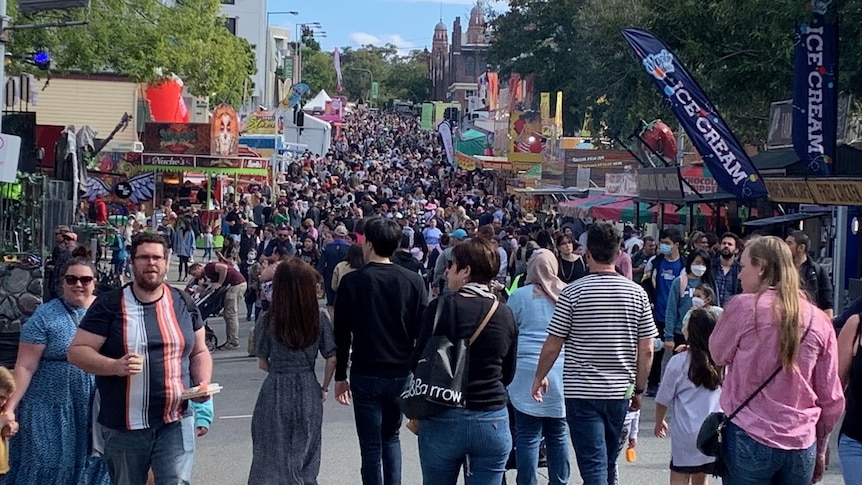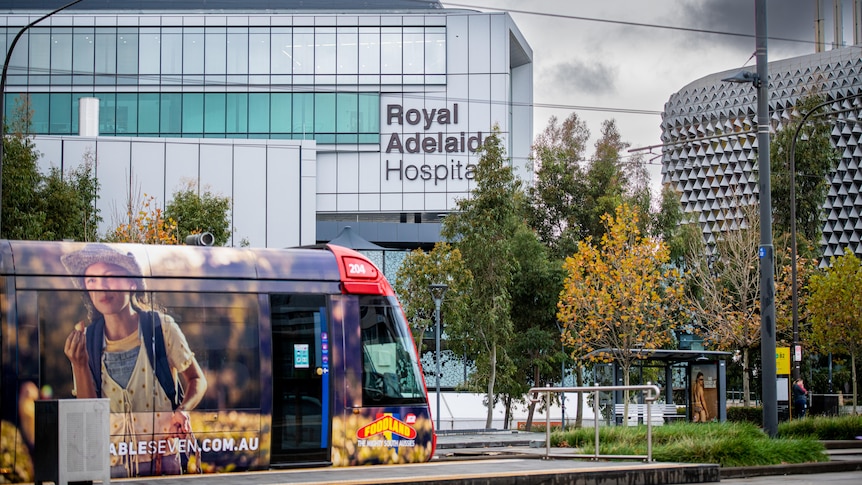As throngs of people flock to the Ekka showgrounds, authorities are concerned about a potential spike in COVID-19 and influenza cases in the Queensland community.
A string of illnesses remain in the community with COVID cases still high, the flu season not yet over and cases of monkeypox being reported interstate.
With some 1,300 head of cattle at the showgrounds, health authorities have also added a potentially devastating foot-and-mouth-disease outbreak to their list of concerns, though the risk remains low.
Back after a two-year COVID-induced hiatus, Ekka crowds have exceeded expectations with people steadily streaming through the gates.
Virologist Lara Herrero said the Ekka event would inevitably lead to a spike in transmission of both COVID and the flu.
“I have absolutely no doubt there will be an increase in transmission for an event like that — it’s simple mathematics,” she said.
So how can you safely hit the Ekka to devour a dagwood dog without getting sick?
Here are Dr Herrero’s five key pieces of advice:
1. Don’t get slack
Dr Herrero reminded those hitting the show to stay vigilant by employing all the usual tactics.
“Monitor for any symptoms at all,” she said.
“Try your best to keep that 1.5 meters of social distancing where you can.
“Bring your own alcohol wipes and hand sanitiser.
“Avoid shaking hands and hugging — I would still opt to first bump or wave.”
2. Wear a mask
You know the drill.
Free masks will be available upon entry to the showgrounds. If in doubt, mask up.
Queensland Agriculture Minister Mark Furner said he was impressed with the “reasonable amount of people wearing a mask”.
“Bring your mask along or get one on entry, make sure your protected and you’ll have no issues,” he said.
Queensland Health has encouraged everyone at the Ekka to wear a face mask, “not only for themselves but for every other person who is there to celebrate safely”.
Dr Herrero said she had no doubt people who live in the regions that come to the Ekka and return home to regional and rural areas will bring infection back with them.
“We have more cases in the city because we have more people, we’re living in a high-density community with more cases.
“So by sheer numbers, I have no doubt transmission on the regions will go up.
“It’s a good idea for those people returning to regional and remote areas to wear a mask for 24-48 hours to stop transmission to vulnerable people”
3. Stay away if unwell
“The Ekka is all about community spirit so if you have any symptoms, no matter how mild, have a bit of community spirit and stay at home,” Dr Herrero said.
Mr Furner advised anyone feeling under the weather to stay well away from the showgrounds, get tested and isolate.
“We don’t want people coming here spreading illness, whether it be the flu or COVID,” he said.
“Keep away if you’re feeling unwell and get tested.”
4. Wash your shoes and clothes of foreign dirt
The Ekka show is the largest showing of stud beef in the southern hemisphere with some 1,300 head of cattle at the showgrounds.
This has sparked fears of a foot-and-mouth-disease outbreak that could cost the industry an estimated $80 billion.
Federal Agriculture Minister Murray Wyatt estimated there was an 11.6 per cent risk of a potentially devastating outbreak occurring which would trigger a 72-hour national livestock standstill and longer-term movement controls on animals.
A preventive task force has been established with border security on-site.
Dr Herrero strongly advised people who live in agricultural areas to wash their shoes and clothes of dirt or mud from any other agricultural region to avoid an outbreak of foot-and-mouth disease.
With one case of monkeypox recorded in Queensland, authorities are also asking patrons to stay vigilant and monitor for symptoms.
5. Get vaccinated
With a little more than three weeks of winter remaining, most of you would have had your COVID and flu vaccines by now.
the fourth COVID vaccine or “winter shot” is available for all Australians over the age of 30, as well as:
- People aged 16 years and above who are severely immunocompromised
- People aged 16 years and above who have a medical condition that increases the risk of severe COVID-19 illness
- People aged 16 years and above who have disabilities with significant, complex, or multiple health issues, which increase the risk of poor outcomes from COVID-19 infection.
Second booster shots are available through GPs and participating pharmacies throughout Queensland.
You can book online or call your GP to check if they accept walk-ins.
You can also find your nearest participating GP or pharmacy using the vaccine clinic finder.
Find out where you can get a flu vaccine here.
As for monkeypox, Health Minister Mark Butler said Australia had secured 450,000 doses of vaccine, which is set to arrive early this week at the latest.
.

